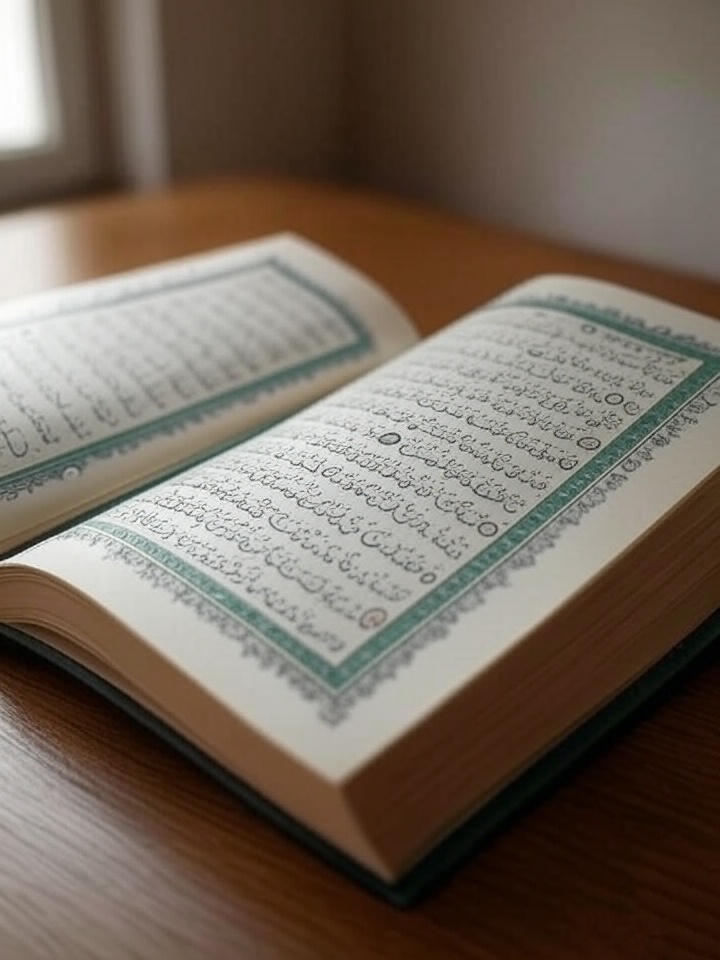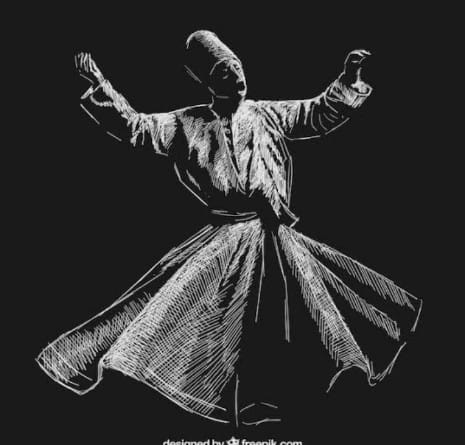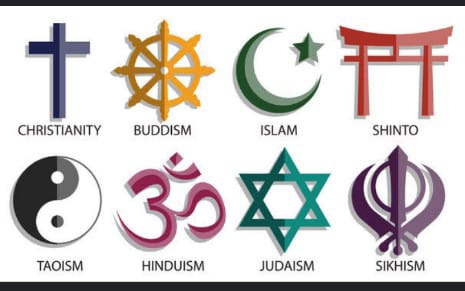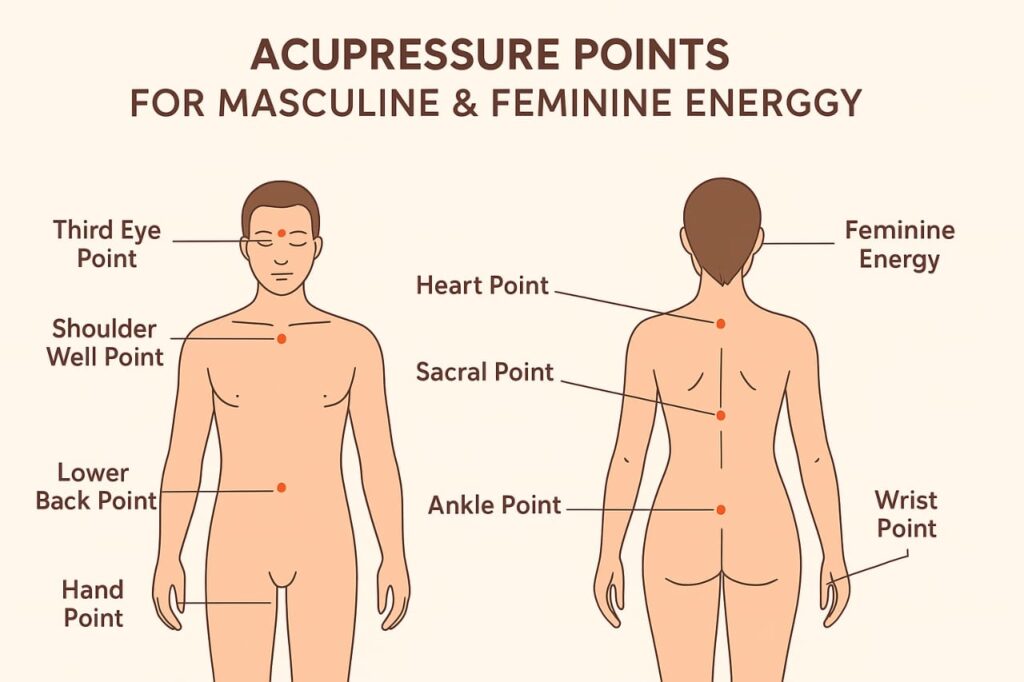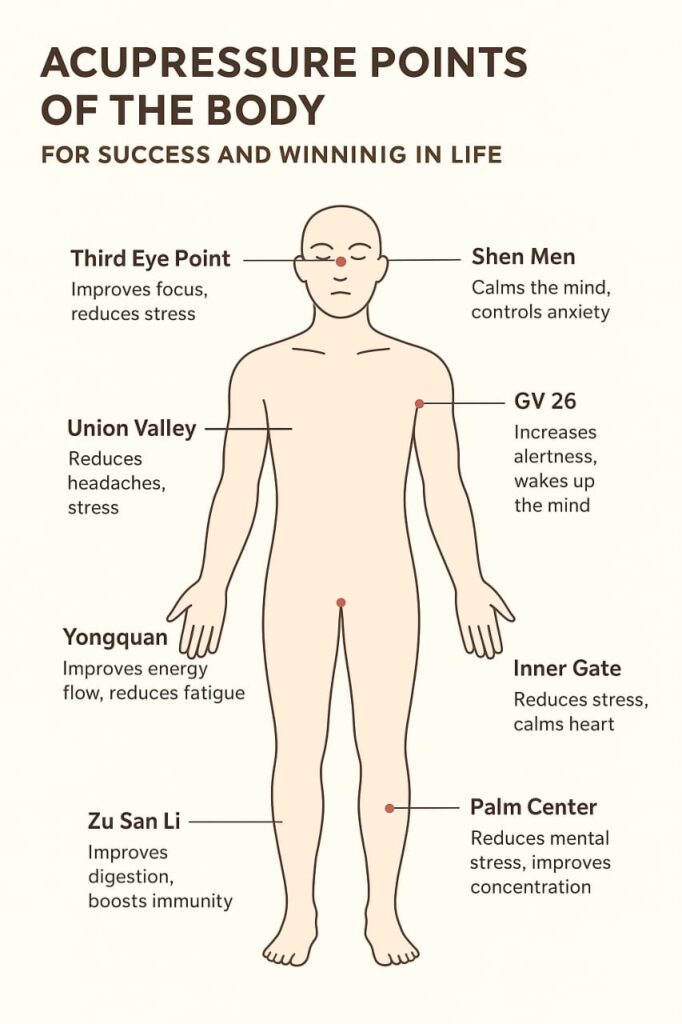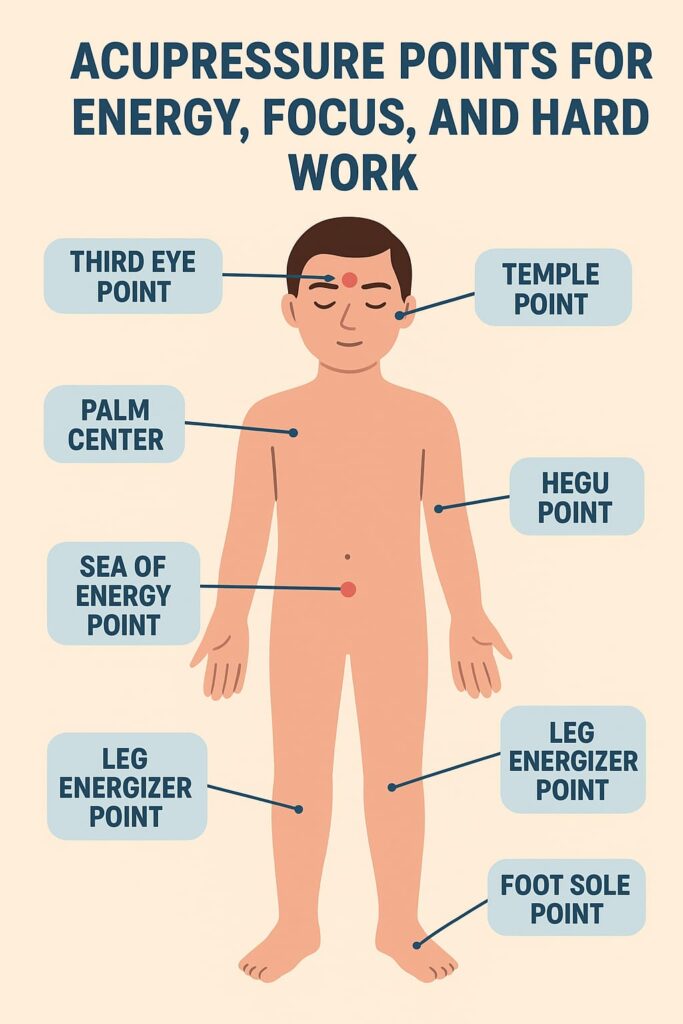How to Keep Winning in Life
Winning is not just about getting a trophy, a medal, or money. True winning is when your heart is at peace, your mind is strong, and your soul is connected to something higher than yourself. In this world, everyone is running in a race—some for wealth, some for power, some for fame, and some for happiness. But very few people know the secret: real victory comes from within.
Let’s explore together how to keep winning—not just once, not just sometimes, but continuously in life.
1. Winning Starts From Inside
The biggest mistake people make is that they think winning means defeating others. No! The greatest victory is when you defeat your own weaknesses—your fear, your laziness, your anger, and your negativity.
👉 If you control your mind, no one can defeat you.
👉 If you fill your heart with patience, no one can shake you.
👉 If you keep faith in God, no storm can destroy you.
This is the foundation of true success.
2. Stay Connected with the Creator
Every religion teaches us that God loves those who strive with patience, honesty, and good intentions. When you walk on the right path, even if the journey looks hard, you will always reach the best destination.
💡 Remember: Success without blessings is an empty victory. But even a small achievement with God’s blessing becomes eternal happiness.
Pray, meditate, do zikr, or simply speak to God from your heart. This connection gives you unshakable strength to win in life again and again.
3. Be a Source of Goodness for Humanity
Winning is not only about you. The highest level of victory is when your success benefits others.
- Help someone in need.
- Share knowledge freely.
- Spread smiles and positivity.
When you lift others, you rise higher yourself. The world remembers those who win hearts, not those who just collect money.
4. Never Give Up—Turn Failures into Fuel
Every great winner in history faced failures. Prophet Muhammad (PBUH) faced hardships but never gave up. Hazrat Musa (AS), Hazrat Isa (AS), Hazrat Ali (RA), saints, scholars, and thinkers—all of them tasted defeat before victory.
So why do we lose hope after one failure?
💡 Failure is not the end—it is a lesson.
💡 Every setback is preparation for a bigger comeback.
Winners are not those who never fall. Winners are those who rise every time they fall.
5. Keep Your Circle Positive
Your company shapes your destiny. If you spend time with negative people, you will lose hope. But if you stay with believers, dreamers, and kind souls, you will feel energized.
👉 Surround yourself with those who remind you of your purpose.
👉 Stay close to people who talk about ideas, not gossip.
👉 Be with those who lift you up, not drag you down.
6. Gratitude is the Key
Gratitude is like oxygen for the soul. A thankful person always wins because he sees blessings even in struggles. When you say “Alhamdulillah”, your heart becomes rich, even if your pocket is empty.
True winners are not those who have everything, but those who are grateful for whatever they have.
7. Keep Learning, Keep Growing
Life is a continuous school. Winners are lifelong students. Read books, listen to wise people, and observe nature. Every day brings a new lesson.
- Learn from the past.
- Live in the present.
- Prepare for the future.
The moment you stop learning, you stop winning.
Final Words: The Eternal Victory
To keep winning in life, you need three things:
- Faith in God – for strength.
- Purity of heart – for peace.
- Service to humanity – for purpose.
If you live with these, you are already a winner. And not just once—you will keep winning again and again.
✨ My friend, never forget: The real winner is not the one who stands on the stage with a medal. The real winner is the one who stands before God with a pure heart.
So rise today. Defeat your fears. Build your faith. Serve humanity. Smile at challenges. And walk with courage. The world needs your light. Keep shining. Keep winning.
How to Keep Winning in Life – Quranic Wisdom, Faith, and the Power of Prayer
Every human being wants to win. Some want to win money, some want to win respect, some want to win hearts, and some want to win Jannah (Paradise). But the question is: How do we keep winning continuously in life—spiritually, mentally, emotionally, and socially?
The Qur’an, the Sunnah, and science together give us a clear answer. Let’s dive deep.
🌙 Quranic Point of View: Real Winning
The Qur’an tells us that real success (Falah) is not just wealth or fame—it is peace of the soul, faith in Allah, and eternal life in Jannah.
Allah reminds us again and again that victory comes with patience, gratitude, and reliance on Him.
📖 10 Quranic Verses About Winning
1. Surah Al-Baqarah (2:153)
Arabic:
يَا أَيُّهَا الَّذِينَ آمَنُوا اسْتَعِينُوا بِالصَّبْرِ وَالصَّلَاةِ ۚ إِنَّ اللَّهَ مَعَ الصَّابِرِينَ
English:
“O you who believe! Seek help through patience and prayer. Indeed, Allah is with the patient.”
Urdu:
اے ایمان والو! صبر اور نماز کے ذریعے مدد حاصل کرو۔ بے شک اللہ صبر کرنے والوں کے ساتھ ہے۔
2. Surah Al-Imran (3:200)
Arabic:
يَا أَيُّهَا الَّذِينَ آمَنُوا اصْبِرُوا وَصَابِرُوا وَرَابِطُوا وَاتَّقُوا اللَّهَ لَعَلَّكُمْ تُفْلِحُونَ
English:
“O you who believe! Be patient, compete in patience, be steadfast, and fear Allah so you may succeed.”
Urdu:
اے ایمان والو! صبر کرو، صبر میں ایک دوسرے سے آگے بڑھو، ثابت قدم رہو اور اللہ سے ڈرو تاکہ تم کامیاب ہو جاؤ۔
3. Surah Ash-Sharh (94:6)
Arabic:
إِنَّ مَعَ الْعُسْرِ يُسْرًا
English:
“Indeed, with hardship comes ease.”
Urdu:
بے شک ہر مشکل کے ساتھ آسانی ہے۔
4. Surah Al-Ankabut (29:69)
Arabic:
وَالَّذِينَ جَاهَدُوا فِينَا لَنَهْدِيَنَّهُمْ سُبُلَنَا ۚ وَإِنَّ اللَّهَ لَمَعَ الْمُحْسِنِينَ
English:
“As for those who strive for Us, We will surely guide them to Our paths. And indeed, Allah is with the doers of good.”
Urdu:
جو لوگ ہمارے راستے میں جہاد کرتے ہیں ہم ضرور انہیں اپنے راستے دکھائیں گے۔ اور بے شک اللہ نیکوکاروں کے ساتھ ہے۔
5. Surah Al-Hajj (22:77)
Arabic:
يَا أَيُّهَا الَّذِينَ آمَنُوا ارْكَعُوا وَاسْجُدُوا وَاعْبُدُوا رَبَّكُمْ وَافْعَلُوا الْخَيْرَ لَعَلَّكُمْ تُفْلِحُونَ
English:
“O you who believe! Bow down, prostrate yourselves, worship your Lord, and do good so you may succeed.”
Urdu:
اے ایمان والو! رکوع کرو، سجدہ کرو، اپنے رب کی عبادت کرو اور نیک کام کرو تاکہ تم کامیاب ہو جاؤ۔
6. Surah Al-Anfal (8:46)
Arabic:
وَأَطِيعُوا اللَّهَ وَرَسُولَهُ وَلَا تَنَازَعُوا فَتَفْشَلُوا وَتَذْهَبَ رِيحُكُمْ وَاصْبِرُوا ۚ إِنَّ اللَّهَ مَعَ الصَّابِرِينَ
English:
“Obey Allah and His Messenger, and do not dispute or you will lose courage and your strength will depart. And be patient. Indeed, Allah is with the patient.”
Urdu:
اللہ اور اس کے رسول کی اطاعت کرو، اور آپس میں جھگڑا نہ کرو ورنہ تم کمزور ہو جاؤ گے اور تمہاری ہوا اکھڑ جائے گی۔ اور صبر کرو، بے شک اللہ صبر کرنے والوں کے ساتھ ہے۔
7. Surah Al-Mu’minun (23:1-2)
Arabic:
قَدْ أَفْلَحَ الْمُؤْمِنُونَ
الَّذِينَ هُمْ فِي صَلَاتِهِمْ خَاشِعُونَ
English:
“Indeed, the believers have succeeded—those who humble themselves in prayer.”
Urdu:
یقیناً ایمان والے کامیاب ہو گئے ہیں۔ جو اپنی نماز میں عاجزی کرتے ہیں۔
8. Surah Al-Hashr (59:18-19)
Arabic:
يَا أَيُّهَا الَّذِينَ آمَنُوا اتَّقُوا اللَّهَ وَالْتَنْظُرْ نَفْسٌ مَا قَدَّمَتْ لِغَدٍ ۖ وَاتَّقُوا اللَّهَ ۚ إِنَّ اللَّهَ خَبِيرٌ بِمَا تَعْمَلُونَ
English:
“O you who believe! Fear Allah, and let every soul look to what it has sent forth for tomorrow. And fear Allah; surely Allah is aware of what you do.”
Urdu:
اے ایمان والو! اللہ سے ڈرو اور ہر شخص دیکھے کہ اس نے کل کے لئے کیا بھیجا ہے۔ اور اللہ سے ڈرتے رہو۔ بے شک اللہ تمہارے اعمال سے خوب واقف ہے۔
9. Surah Al-Isra (17:19)
Arabic:
وَمَنْ أَرَادَ الْآخِرَةَ وَسَعَى لَهَا سَعْيَهَا وَهُوَ مُؤْمِنٌ فَأُولَٰئِكَ كَانَ سَعْيُهُمْ مَشْكُورًا
English:
“Whoever desires the Hereafter and strives for it with the required effort, while he is a believer—it is they whose striving will be appreciated.”
Urdu:
جو آخرت کا ارادہ کرے اور اس کے لئے کوشش کرے جبکہ وہ مومن ہو، تو ایسے لوگوں کی کوشش کی قدر کی جائے گی۔
10. Surah At-Tawbah (9:111)
Arabic:
إِنَّ اللَّهَ اشْتَرَىٰ مِنَ الْمُؤْمِنِينَ أَنفُسَهُمْ وَأَمْوَالَهُم بِأَنَّ لَهُمُ الْجَنَّةَ
English:
“Indeed, Allah has purchased from the believers their lives and their properties in exchange for Paradise.”
Urdu:
بے شک اللہ نے مومنوں سے ان کی جانیں اور ان کا مال جنت کے بدلے خرید لیا ہے۔
🌸 The 99 Beautiful Names of Allah (Asma-ul-Husna)
The 99 Names of Allah are full of power, mercy, and motivation. When you call Allah by His names, you bring blessings, peace, and strength into your life.
For example:
- Al-Fattah (The Opener) – He opens the doors of success.
- Al-Nasir (The Helper) – He helps you win against difficulties.
- Al-Sabur (The Patient One) – He teaches patience, which is key to victory.
- Al-Hafiz (The Protector) – He protects you in every battle of life.
Reciting and remembering these names daily puts your heart in a winning position.
🧠 Science of Prayer: How It Creates a Winning Mindset
When Muslims pray (Salah, Dua, Tasbih), it’s not only a spiritual act—it also changes the chemistry of the brain.
- Prayer increases dopamine and serotonin → these are “happiness chemicals” that give confidence.
- Sujood (prostration) brings calmness, reduces stress hormones like cortisol.
- Dhikr (remembrance of Allah) releases endorphins → these make you feel peace and power.
So yes, prayer literally rewires the brain to put you in a winning state of mind.
🌟 Final Message
To keep winning in life:
- Hold tight to Qur’an and Sunnah.
- Call upon Allah through His 99 Names.
- Pray with heart and humility.
- Be patient, grateful, and kind.
- Believe that Allah’s help is always near.
Remember: The real winner is not the one who collects the world, but the one who wins Allah’s pleasure. 🌸
How to Keep Winning in Life – Prophet Muhammad ﷺ’s Teachings and Prophetic Diet Plan
When we talk about “winning” in life, the best example is Prophet Muhammad ﷺ. He was the most successful leader, teacher, father, husband, guide, and servant of Allah. Yet, his idea of winning was never about wealth, luxury, or power—it was always about pleasing Allah, serving people, and staying balanced in body, mind, and soul.
Let’s learn his golden principles and even his daily food habits that kept him full of energy, wisdom, and peace.
🌙 Prophet Muhammad ﷺ’s Views on Winning
The Prophet ﷺ taught us that real winning is not about competing with others—it is about competing with yourself and being closer to Allah every day.
Here are some of his sayings (Hadith) that guide us:
1. Winning is controlling anger
“The strong man is not the one who can wrestle, but the one who controls himself when angry.” (Bukhari & Muslim)
👉 This means success is not physical power—it’s inner control.
2. Winning is helping others
“The best of people are those who are most beneficial to others.” (Daraqutni, Hasan)
👉 True winners are those who serve humanity.
3. Winning is seeking knowledge
“Seeking knowledge is an obligation upon every Muslim.” (Ibn Majah)
👉 Knowledge is the weapon of a winner—it guides decisions and removes darkness.
4. Winning is being content
“Riches is not having many possessions. Rather, true richness is the richness of the soul.” (Bukhari & Muslim)
👉 A content heart is always victorious.
5. Winning is patience in trials
“Amazing is the affair of the believer, for there is good for him in every matter… If he is happy, he thanks Allah and there is good for him. If he is harmed, he shows patience and there is good for him.” (Muslim)
👉 Whatever happens, a believer wins—because both gratitude and patience are victories.
🥗 The Prophetic Diet Plan for 7 Days
The Prophet ﷺ lived a simple life, but his food choices gave him energy, focus, and health. His eating habits are now proven by science to boost the brain, balance the body, and create a positive mindset—perfect for staying in a winning position.
Here’s a 7-day Prophetic Diet Plan, inspired by the Sunnah:
Day 1 – Start with Dates & Milk
- Breakfast: 3-5 dates with a glass of milk.
- Lunch: Barley bread with olive oil.
- Dinner: Light meat stew (goat or chicken) with vegetables.
👉 Dates give instant energy, milk strengthens bones, olive oil supports the heart.
Day 2 – Honey & Water Therapy
- Morning: Warm water with a spoon of honey.
- Breakfast: Fresh fruits (pomegranate, grapes).
- Lunch: Barley soup with a little meat.
- Dinner: Grilled fish with salad.
👉 Honey heals the body and calms the brain, as mentioned in Qur’an (16:69).
Day 3 – Simple and Light
- Breakfast: Dates with cucumber (Prophet ﷺ loved this combo).
- Lunch: Barley bread with vinegar (he said vinegar is a blessed food).
- Dinner: Roasted lamb with cooked pumpkin.
👉 Pumpkin was beloved by the Prophet ﷺ, good for memory and focus.
Day 4 – Balance with Vegetables
- Morning: Water + Black seed (Kalonji).
- Breakfast: Fresh figs or melon.
- Lunch: Vegetable stew with barley bread.
- Dinner: Light meat soup.
👉 Black seed is “a cure for every disease except death” (Hadith).
Day 5 – Moderation Day
- Breakfast: Bread dipped in olive oil.
- Lunch: Lentil soup with barley bread.
- Dinner: Fish with dates on the side.
👉 The Prophet ﷺ ate in moderation and never filled his stomach fully.
Day 6 – Sweetness and Energy
- Morning: Spoon of honey in water.
- Breakfast: Fresh grapes or raisins.
- Lunch: Roasted chicken with barley.
- Dinner: Pumpkin or cucumber salad.
👉 Grapes and raisins are brain boosters and natural sweeteners.
Day 7 – Gratitude Day
- Breakfast: Dates with milk.
- Lunch: Bread with vinegar and olive oil.
- Dinner: Light meat dish with barley soup.
👉 End the week with simplicity and gratitude. The Prophet ﷺ sometimes ate very little, teaching us that winning is not about overeating but about discipline.
🌸 Key Sunnah Eating Habits for a Winning Life
- Eat in moderation – Never fill your stomach fully (⅓ food, ⅓ water, ⅓ air).
- Start with Bismillah, end with Alhamdulillah – Gratitude brings blessings.
- Eat slowly – Mindful eating helps digestion.
- Prefer simple food – The Prophet ﷺ avoided luxury food.
- Share food – Sharing doubles the barakah (blessings).
🧠 Why This Diet Helps You Win (Science + Sunnah)
- Dates, honey, and figs boost serotonin → happiness chemical.
- Olive oil and fish support omega-3 → strong brain and memory.
- Sujood (prostration) in prayer increases blood flow → calmness.
- Eating less prevents laziness and diseases → keeps you active.
🌟 Final Winning Formula
Prophet Muhammad ﷺ showed us that:
- Winning = Faith + Patience + Gratitude + Knowledge + Good Health.
- Eating according to Sunnah makes your body and brain stronger.
- Living with balance, prayer, and kindness makes you unstoppable.
💡 Remember: A believer never loses. If he succeeds, he thanks Allah. If he struggles, he shows patience. Both ways—he wins.
How to Keep Winning in Life – Lessons from Different Religions
Winning in life is something every human dreams about. But what does “winning” really mean? Is it money, power, respect, or peace of heart?
Every religion teaches that real success is not just outside but also inside. It is about living with purpose, kindness, faith, and balance. Let’s see how different religions guide us on how to keep winning in life.
🌙 Islam
Islam teaches that winning means pleasing Allah, serving people, and living with patience and gratitude.
- The Qur’an says: “Indeed, the believers have succeeded, those who humble themselves in prayer.” (23:1-2)
- Prophet Muhammad ﷺ said: “The best of people are those who are most beneficial to others.”
👉 According to Islam, the true winner is the one who controls his desires, stays patient, helps humanity, and finally wins Jannah (Paradise).
✝️ Christianity
In Christianity, winning is not about wealth or fame—it is about love, forgiveness, and eternal life with God.
- Jesus (Isa عليه السلام) said: “What will it profit a man if he gains the whole world but loses his soul?” (Mark 8:36)
- He also said: “Blessed are the peacemakers, for they shall be called children of God.” (Matthew 5:9)
👉 According to Christianity, the real winner is the one who loves, forgives, serves others, and saves his soul for eternal life.
🕉️ Hinduism
Hinduism teaches that winning in life is about dharma (righteous duty), karma (actions), and moksha (liberation).
- The Bhagavad Gita says: “You have the right to perform your duty, but not to the fruits of your actions.”
- It also teaches that self-control and discipline lead to victory over the self, which is greater than victory over others.
👉 According to Hinduism, the real winner is the one who lives honestly, performs duties without selfishness, and seeks spiritual liberation.
☸️ Buddhism
Buddhism teaches that winning is about conquering the mind, removing greed, anger, and ignorance, and finding inner peace (Nirvana).
- The Buddha said: “Better than winning a thousand battles is conquering yourself. Then the victory is yours, and it cannot be taken away.”
👉 According to Buddhism, the true winner is the one who controls his mind, lives with compassion, and finds peace within.
✡️ Judaism
Judaism teaches that winning is about walking with God, following His commandments, and living with justice and kindness.
- The Torah says: “What does the Lord require of you? To act justly, to love mercy, and to walk humbly with your God.” (Micah 6:8)
👉 According to Judaism, the real winner is the one who lives morally, shows mercy, and stays close to God.
🕊️ Sikhism
Sikhism teaches that winning in life is about living truthfully, serving humanity, and remembering God (Waheguru).
- Guru Nanak said: “Truth is high, but higher still is truthful living.”
- Sikhs believe in seva (selfless service) as the highest form of success.
👉 According to Sikhism, the true winner is the one who serves others, remembers God, and lives honestly.
🌏 Universal Message of All Religions
If we look closely, all religions tell us the same secret:
- Winning is not greed—it is contentment.
- Winning is not selfishness—it is service.
- Winning is not temporary—it is eternal peace with God.
Whether you follow Islam, Christianity, Hinduism, Buddhism, Judaism, or Sikhism—the message is clear:
👉 The real winner is the one who defeats his ego, lives with love and kindness, and seeks closeness to the Creator.
🌸 Final Words
Dear reader, winning in life is not just about having more money, cars, or fame. It is about:
- A peaceful heart.
- A pure soul.
- Service to humanity.
- A connection with God.
Different religions may use different words—Allah, God, Bhagwan, Waheguru—but the destination is the same: a life of meaning, balance, and eternal success.
💡 So if you want to keep winning in life, remember: Conquer your mind, serve others, love your Creator, and never lose hope.
Motivational Stories: How to Keep Winning in Life
🌙 Story 1: The Prophet Muhammad ﷺ and Ta’if – Winning Through Patience
Once, Prophet Muhammad ﷺ went to the city of Ta’if to invite people to Islam. Instead of welcoming him, they mocked him, insulted him, and even threw stones at him until his feet were bleeding.
Most people would have given up at that point. But the Prophet ﷺ didn’t. He raised his hands and prayed:
“O Allah, guide these people, for they do not know what they are doing.”
Years later, the same people who rejected him accepted Islam.
👉 Lesson: A true winner is not the one who never faces rejection. A true winner is the one who keeps going with patience and forgiveness until success arrives.
✝️ Story 2: Thomas Edison – Winning Through Failure
Thomas Edison, the man who invented the light bulb, failed more than 1,000 times while trying to make it work.
When someone asked him, “Don’t you feel bad that you failed 1,000 times?” Edison replied:
“I did not fail 1,000 times. The light bulb was an invention with 1,000 steps.”
Finally, the world lit up because of his persistence.
👉 Lesson: Failure is not the opposite of winning. Failure is part of winning.
🕉️ Story 3: Arjuna in the Mahabharata – Winning Through Focus
In the Hindu epic Mahabharata, a teacher once asked his students to aim at a wooden bird’s eye. Everyone looked at the bird, its wings, and the tree.
But Arjuna said: “I see only the eye of the bird.”
Because of his focus, he hit the target perfectly.
👉 Lesson: A winner is the one who keeps focus on his goal and ignores distractions.
☸️ Story 4: The Buddha – Winning Over Anger
One day, a man came to insult the Buddha with harsh words. Instead of replying, the Buddha stayed calm.
When the man stopped, the Buddha said: “If someone gives you a gift and you refuse it, who does it belong to?”
The man replied: “To the giver.”
The Buddha said: “I refuse to accept your anger, so it still belongs to you.”
👉 Lesson: Winning is not replying to every insult. Winning is staying peaceful when others lose control.
✡️ Story 5: Nelson Mandela – Winning Through Forgiveness
Nelson Mandela spent 27 years in prison for fighting against racism in South Africa. When he was finally released, he could have taken revenge. But instead, he forgave those who jailed him and worked for peace.
Later, he became the President of South Africa and a symbol of forgiveness.
👉 Lesson: A true winner is not the one who takes revenge but the one who heals hearts.
🕊️ Story 6: The Orphan Boy Who Became a Doctor
There was once a poor orphan boy in Pakistan. He had no money, sometimes no food, and even studied under streetlights because he had no electricity. People laughed at him and said, “You will never make it.”
But he never gave up. He worked hard, studied day and night, and trusted Allah. Years later, he became a famous doctor, saving lives every day.
👉 Lesson: Winning is not about where you start. Winning is about how strong your faith and hard work are.
🌏 Story 7: Malala Yousafzai – Winning Through Courage
Malala, a young girl from Pakistan, wanted to study. But extremists tried to stop her. One day, they even shot her.
Instead of being afraid, she stood up stronger. She spoke to the world about education for girls and won the Nobel Peace Prize.
👉 Lesson: Winners are not the ones who never face danger. Winners are the ones who keep walking, even after being attacked.
🌟 Final Words
Dear reader, remember:
- Prophet Muhammad ﷺ taught us to win with patience.
- Edison showed us to win through failure.
- Arjuna showed us to win with focus.
- Buddha taught us to win over anger.
- Mandela showed us to win with forgiveness.
- The orphan boy showed us to win with hard work.
- Malala showed us to win with courage.
💡 The secret is clear: Winners are not born, they are made by patience, faith, courage, and never giving up.
How to Keep Winning in Life – Wisdom from World Famous Psychologists
Psychologists study the human brain, behavior, and emotions. They have discovered many secrets about how people succeed, stay strong, and keep winning in life. Their research shows that winning is not only about talent—it is about mindset, habits, and how we train our brain.
Let’s learn what some of the greatest psychologists and thinkers taught us about winning in life.
🧠 1. William James – The Power of Belief
William James, known as the “Father of Psychology” in America, said:
“Believe that life is worth living, and your belief will help create the fact.”
He believed that faith in yourself and in life itself is the first step to winning. If you think positively, your actions will follow.
👉 Lesson: Winners are created by strong belief.
🧠 2. Sigmund Freud – Victory Over the Inner Self
Freud, the founder of psychoanalysis, explained that human beings fight daily battles inside their minds—between desires, fears, and morals.
He believed that people who understand themselves and control their inner conflicts live happier and more successful lives.
👉 Lesson: Winning starts by knowing yourself and controlling your hidden fears.
🧠 3. Carl Jung – Becoming Your True Self
Carl Jung, a famous Swiss psychologist, said that real success comes when you find your “true self” instead of living a fake life.
He taught the idea of individuation—becoming the person Allah/God created you to be.
👉 Lesson: Winners are not copies of others—they are original and true to themselves.
🧠 4. B.F. Skinner – Habits Create Winners
Skinner discovered that human behavior can be shaped by habits and rewards. If you repeat good actions and reward yourself, they become strong habits.
👉 Lesson: Winning is not one big act. It is the result of small daily habits repeated again and again.
🧠 5. Albert Bandura – The Power of Confidence
Bandura introduced the idea of self-efficacy—the belief that “I can do this.”
He showed that people who believe in their ability work harder, try longer, and achieve more than those who doubt themselves.
👉 Lesson: Winners are not those who never fail—they are those who believe they can always try again.
🧠 6. Viktor Frankl – Finding Meaning in Life
Frankl was a psychologist who survived the Nazi concentration camps. Even in the darkest times, he saw people win in life by holding onto meaning and purpose.
He wrote:
“Those who have a ‘why’ to live can bear almost any ‘how.’”
👉 Lesson: Winners always have a bigger purpose that gives them strength.
🧠 7. Martin Seligman – Positive Psychology
Seligman is the father of modern Positive Psychology. He taught that people win in life when they focus on:
- Gratitude
- Hope
- Optimism
- Strengths, not weaknesses
👉 Lesson: Winners build their lives around positivity and gratitude.
🧠 8. Carol Dweck – Growth Mindset
Carol Dweck discovered the difference between two mindsets:
- Fixed Mindset: “I am born this way. I cannot change.”
- Growth Mindset: “I can improve with effort.”
She proved that people with a growth mindset keep winning, because they learn from mistakes and never stop growing.
👉 Lesson: Winners always think, “I can learn, I can grow, I can improve.”
🧠 9. Daniel Goleman – Emotional Intelligence
Goleman showed that success is not only IQ (intelligence) but also EQ (emotional intelligence)—the ability to control emotions, understand others, and build relationships.
👉 Lesson: Winners don’t just use their brain—they also use their heart.
🧠 10. Angela Duckworth – Grit and Perseverance
Angela Duckworth studied why some people succeed more than others. She found the secret is grit—passion + perseverance.
👉 Lesson: Winners are not the smartest or the fastest—they are the ones who keep going until the end.
🌟 Final Winning Formula (Psychology + Spirituality)
From psychology and religion, we learn the same truth:
- Believe in yourself and in God – (William James + Qur’an)
- Control your mind and emotions – (Freud + Buddha + Qur’an)
- Be true to yourself – (Carl Jung + Prophet ﷺ’s honesty)
- Build good habits – (Skinner + Sunnah lifestyle)
- Have confidence and courage – (Bandura + Malala’s story)
- Live with purpose – (Frankl + Islam’s goal: Jannah)
- Stay positive and grateful – (Seligman + Qur’an’s teaching of shukr)
- Adopt a growth mindset – (Dweck + Prophetic teaching: seek knowledge)
- Strengthen relationships – (Goleman + all religions’ teaching of love)
- Never give up – (Duckworth + story of Ta’if & Prophet ﷺ).
💡 Conclusion:
World-famous psychologists and prophets, saints, and leaders all agree:
👉 Winning in life is not luck—it is belief, patience, purpose, and daily effort.
Every time you fall, rise again. Every time you doubt, believe again. Every time you lose, learn again. That is how you keep winning—not once, but forever. 🌸
Winning in Life with the Right Diet – Wisdom from World Famous Nutrition Experts
Health and diet play a very big role in success. If your body is weak, your mind cannot focus. If your energy is low, your spirit feels down. That is why many world-famous nutrition experts and doctors teach that food is medicine, and good diet is the foundation of a winning life.
Let’s explore their ideas and then see a 7-day nutritionist-inspired diet plan for staying in a winning position.
🥗 Teachings of Famous Nutrition Experts
1. Dr. Michael Greger (USA) – Whole Food, Plant-Based Diet
Dr. Greger teaches that eating fruits, vegetables, beans, and whole grains can prevent most diseases. He says:
- Eat more plants, less processed food.
- Use food as medicine.
- Small daily choices add up to big success.
👉 Lesson: Winners eat natural, colorful, plant-based foods.
2. Dr. Dean Ornish (USA) – Heart Health Through Diet
Dr. Ornish showed that a low-fat, vegetarian diet plus exercise and stress control can even reverse heart disease. He focuses on:
- Vegetables, fruits, legumes, nuts.
- Less sugar, oil, and processed food.
- Healthy lifestyle as a whole.
👉 Lesson: Winning is keeping your heart strong with natural food and calm living.
3. Dr. Walter Willett (Harvard) – Balanced Healthy Eating
Dr. Willett helped create the Harvard Healthy Eating Plate. He suggests:
- Half your plate should be vegetables and fruits.
- Choose whole grains instead of white bread or rice.
- Healthy proteins like fish, beans, nuts.
- Use healthy oils like olive oil.
👉 Lesson: Balance in food = balance in life.
4. Dr. Mark Hyman – Functional Medicine & Brain Health
Dr. Hyman says food affects the brain and emotions. Junk food creates stress and depression, while healthy food creates focus and happiness. He suggests:
- Avoid sugar and refined carbs.
- Eat healthy fats (avocado, olive oil, nuts, fish).
- Include protein and fiber in every meal.
👉 Lesson: Winners feed their brain with good fuel, not junk.
5. Dr. Rujuta Diwekar (India) – Local and Seasonal Eating
Dr. Rujuta teaches that eating local, seasonal foods is best for health. She says:
- Don’t run after fancy diets.
- Respect traditional, natural foods.
- Eat fresh and simple, not processed.
👉 Lesson: Winners stay connected to their roots and eat what nature provides in their season.
6. Dr. William Li – Food as Medicine
Dr. Li explains how certain foods can fight disease, boost immunity, and even fight cancer. His key foods include:
- Green tea
- Berries
- Pomegranate
- Leafy greens
- Tomatoes
- Nuts
👉 Lesson: The right foods make your body a warrior.
🥗 7-Day Winning Diet Plan (Inspired by Nutrition Experts)
This is a simple, balanced plan based on the teachings of these doctors.
Day 1
- Breakfast: Oatmeal with fruits and nuts + green tea.
- Lunch: Brown rice + lentils + mixed vegetables.
- Snack: Apple with peanut butter.
- Dinner: Grilled fish + salad with olive oil.
Day 2
- Breakfast: Whole grain bread + avocado + boiled egg.
- Lunch: Quinoa + chickpea curry + salad.
- Snack: Handful of almonds or walnuts.
- Dinner: Vegetable soup + whole grain bread.
Day 3
- Breakfast: Smoothie with banana, spinach, and flax seeds.
- Lunch: Barley or millet roti + vegetable curry.
- Snack: Carrot and cucumber sticks with hummus.
- Dinner: Grilled chicken or paneer + roasted vegetables.
Day 4
- Breakfast: Dates + warm milk + small handful of nuts.
- Lunch: Brown rice + beans + green vegetables.
- Snack: Fresh fruit (grapes, pomegranate, or orange).
- Dinner: Baked fish or lentil soup + salad.
Day 5
- Breakfast: Whole grain toast + honey + herbal tea.
- Lunch: Whole grain pasta with vegetables and olive oil.
- Snack: Yogurt with berries.
- Dinner: Vegetable stew + barley bread.
Day 6
- Breakfast: Poha or upma (light grain dish) with vegetables.
- Lunch: Brown rice + grilled chicken/fish or tofu.
- Snack: Nuts + seeds (pumpkin, sunflower).
- Dinner: Vegetable soup + whole wheat bread.
Day 7
- Breakfast: Fruits platter + green tea.
- Lunch: Lentil soup + quinoa + salad.
- Snack: Smoothie with oats, banana, and almonds.
- Dinner: Light curry (vegetables or chicken) with brown rice.
🌟 Key Winning Diet Habits
- Drink enough water every day.
- Eat colorful fruits and vegetables (they have natural vitamins).
- Avoid junk food, fried food, and too much sugar.
- Use olive oil, nuts, and seeds for healthy fats.
- Don’t overeat—eat until 80% full.
- Respect local and seasonal foods.
- Eat with gratitude (Bismillah / prayer / mindfulness).
💡 Final Words
Famous nutrition doctors agree:
👉 Food is not just calories—it is information for your body and brain.
👉 If you eat well, you think well, act well, and keep winning in life.
So, dear reader, if you want to win not only in studies, career, or business but also in health and peace of mind—start from your plate. Because as they say:
✨ “Your body is a reflection of what you eat. A winning diet creates a winning life.”
📚 Motivational Books That Teach How to Keep Winning in Life
Books are like teachers who speak to us through pages. Many people in the world have changed their lives just by reading the right book at the right time. If you want to keep winning in life, here are some of the world’s most powerful motivational books that will guide you step by step.
1. “The 7 Habits of Highly Effective People” – Stephen R. Covey
This book is a life-changing classic. Stephen Covey explains that success is not about luck, it is about habits.
- Habits like being proactive, setting goals, prioritizing, and thinking win-win create winners in life.
- He also teaches about balancing relationships, career, and spirituality.
👉 Lesson: Winners are not born—they are made by daily habits.
2. “Think and Grow Rich” – Napoleon Hill
One of the oldest and most powerful motivational books in the world. Napoleon Hill interviewed hundreds of successful people and discovered their secrets.
- The book teaches about the power of desire, faith, persistence, and positive thinking.
- It also talks about visualization and using your mind to attract success.
👉 Lesson: If you truly desire something and never give up, the world will help you win.
3. “Awaken the Giant Within” – Tony Robbins
Tony Robbins is a world-famous motivational speaker. In this book, he shows how to control your emotions, mind, body, and finances to live a successful life.
- He teaches that winners are those who take control of their lives instead of waiting for luck.
- The book is full of practical steps to change your mindset.
👉 Lesson: Winning starts the day you take charge of your own life.
4. “The Power of Positive Thinking” – Norman Vincent Peale
This book is deeply spiritual and motivational. It shows how faith in God, prayer, and positive thinking can make a person strong against all difficulties.
- The author shares real-life stories of people who won in life because of optimism.
- It’s a book full of hope, courage, and inspiration.
👉 Lesson: Winners stay positive, no matter how dark the road looks.
5. “Grit: The Power of Passion and Perseverance” – Angela Duckworth
Angela Duckworth explains that the biggest secret of success is not talent—it is grit.
- Grit means passion + patience + hard work for a long time.
- The book gives examples of students, athletes, and professionals who kept going until they succeeded.
👉 Lesson: Winners are not those who are fastest, but those who never quit.
6. “Atomic Habits” – James Clear
A modern best-seller about how tiny daily changes create big success.
- James Clear explains that you don’t need to make huge changes.
- Just improve 1% every day, and after one year you will be much stronger.
- The book gives easy methods for building good habits and breaking bad ones.
👉 Lesson: Small daily victories lead to big lifelong winning.
7. “Man’s Search for Meaning” – Viktor Frankl
Viktor Frankl, a psychologist, survived the Nazi concentration camps. He wrote this book to show how people can survive even the darkest times with purpose and meaning.
- He explains that life is about finding your “why.”
- When you have a reason to live, you can handle any problem.
👉 Lesson: Winners always have a bigger purpose that gives them strength.
8. “Can’t Hurt Me” – David Goggins
This is the story of David Goggins, who went from being poor, overweight, and hopeless to becoming a Navy SEAL, ultra-marathon runner, and world record holder.
- His book shows how discipline, mental toughness, and refusing to quit create true winners.
- He says, “Your mind quits long before your body does.”
👉 Lesson: Winners push past their limits again and again.
9. “You Are a Badass” – Jen Sincero
This is a light, fun, and motivational book. It helps you stop doubting yourself and start living a bold life.
- The author mixes humor with wisdom.
- It’s about self-love, confidence, and taking risks to win in life.
👉 Lesson: Winners trust themselves and live with confidence.
10. “The Magic of Thinking Big” – David J. Schwartz
This book teaches that the size of your success depends on the size of your thinking.
- People who think small live small lives.
- People who dream big and act big live powerful, winning lives.
👉 Lesson: Winners dare to dream bigger than others.
🌟 Final Thoughts
All these books give us one big message:
👉 Winning in life is not about money or luck—it is about mindset, habits, faith, and never giving up.
If you read even one of these books with an open heart and apply the lessons, your life can change. Imagine what will happen if you read all of them!
✨ Books are like silent mentors—they guide you when no one else does. If you want to keep winning in life, start reading today.
🌟 Behind Every Successful Man, There is a Woman
People often say: “Behind every successful man, there is a woman.” This is not just a saying—it is a truth of life. A man can be strong, intelligent, and hardworking, but without the love, support, and prayers of a woman, his journey feels incomplete.
A wife is not only a life partner—she is a supporter, a motivator, and sometimes the silent power that pushes her husband toward greatness.
Let’s see how a woman can help her husband become truly successful in life.
💖 1. Emotional Support – The Heart of Success
Every man faces challenges, stress, and failure on his journey. A good wife gives him peace of mind and emotional strength.
- When he feels broken, she gives him hope.
- When he feels tired, she comforts him.
- When he feels doubtful, she reminds him of his strengths.
👉 A peaceful heart at home gives a man the courage to fight battles outside.
💡 2. Belief in Him – The Power of Faith
Sometimes the whole world doubts a man. In those moments, if his wife says: “I believe in you, you can do it,” it gives him new energy.
Many great leaders and thinkers in history said their wives’ belief was their biggest motivation.
👉 A woman’s faith in her husband can turn his weakness into strength.
🌱 3. Helping Him Grow – Mentally and Spiritually
A good wife not only supports but also guides and advises wisely. She reminds her husband of God, faith, and values. She motivates him to keep learning and improving.
👉 Together, husband and wife become a team that grows stronger every day.
🏡 4. Creating Peace at Home
Home is the place where a man recharges his energy. If the home is full of love, respect, and peace, he can work outside with focus and power.
- A caring wife makes the house a heaven of peace.
- That peace becomes the secret fuel behind his success.
🙏 5. Prayers and Spiritual Support
A wife’s prayer is very powerful. When she raises her hands and asks Allah (God) for her husband’s success, doors of mercy open.
👉 A praying woman is a true partner in her husband’s victories.
🧘 Husband and Wife Meditation – A Spiritual Bond
Meditation between husband and wife is not only about sitting silently—it is about connecting hearts, minds, and souls.
Here are some simple meditations couples can do together:
🌸 1. Gratitude Meditation
- Sit together in a quiet place.
- Close your eyes and hold hands.
- Each one says silently: “Thank You, Allah, for my partner.”
- Feel gratitude in your heart.
👉 This creates love, peace, and stronger connection.
🌸 2. Breathing Together
- Sit face to face.
- Inhale slowly while your partner exhales.
- Synchronize your breathing.
- Imagine you are sharing calm energy with each other.
👉 This reduces stress and builds harmony between husband and wife.
🌸 3. Prayer Meditation
- Sit together after salah (prayer).
- Both raise hands and make dua for each other.
- Say: “Ya Allah, bless my spouse with health, happiness, and success.”
👉 When both pray for each other, their bond becomes unbreakable.
🌟 Final Words
A woman has the power to make her husband a winner in life. With her:
- Love (he feels alive),
- Belief (he feels confident),
- Peace (he feels calm),
- Prayers (he feels blessed).
And when husband and wife meditate, pray, and support each other, they don’t just create one winner—they create a winning family, a winning generation, and a winning life together.
✨ Truly, behind every successful man there is a woman, and behind every peaceful woman there is a loving man. Together, they win in this world and in the Hereafter.
🌟 Acupressure Points of the Body for Success and Winning in Life
Our body is full of hidden energy channels. In ancient Chinese and Ayurvedic medicine, people discovered that pressing certain points in the body can release blocked energy, improve health, and give mental clarity. This practice is called acupressure.
When your body is full of energy, your mind becomes focused. When your mind is focused, you take better actions. And when your actions are strong, you keep winning in life.
Let’s learn the powerful acupressure points that can help in focus, motivation, stress relief, and confidence.
🖐️ 1. Third Eye Point (Between the Eyebrows)
- Location: The spot between your eyebrows, just above the nose.
- Benefit: Improves focus, reduces stress, and gives inner peace.
- How to press: Use your finger to gently press this point for 1–2 minutes while breathing deeply.
👉 Why it helps winning: A calm and focused mind makes better decisions.
✋ 2. Union Valley (Between Thumb and Index Finger)
- Location: The soft skin between your thumb and index finger.
- Benefit: Reduces headaches, stress, and gives mental clarity.
- How to press: Squeeze this point with the thumb and finger of your other hand for 1–2 minutes.
👉 Why it helps winning: Clears mental pressure and gives fresh energy to keep moving.
👂 3. Shen Men (Spirit Gate in the Ear)
- Location: Upper part of the ear, near the hollow.
- Benefit: Calms the mind, controls anxiety, improves sleep.
- How to press: Massage this point gently on both ears.
👉 Why it helps winning: Peaceful sleep and calm mind make you stronger the next day.
🦶 4. Yongquan (Bubbling Spring – Under the Foot)
- Location: Center of the sole, just below the ball of the foot.
- Benefit: Improves energy flow, reduces fatigue, grounds the body.
- How to press: Massage with your thumb or use a small ball to roll under the foot.
👉 Why it helps winning: Gives physical energy and refreshes the body.
✋ 5. Inner Gate (Wrist Point – Pericardium 6)
- Location: On the inner wrist, three fingers below the palm.
- Benefit: Reduces stress, calms heart, improves confidence.
- How to press: Use your thumb to gently press in circles for 1 minute.
👉 Why it helps winning: Removes anxiety before exams, meetings, or challenges.
👃 6. GV 26 (Philtrum Point – Upper Lip)
- Location: The line between upper lip and nose.
- Benefit: Increases alertness, wakes up the mind, gives sharp focus.
- How to press: Press gently for 30 seconds when feeling tired.
👉 Why it helps winning: Sharpens the brain in moments of laziness or dullness.
🦵 7. Zu San Li (Leg Three Mile – Below the Knee)
- Location: About 3 fingers below the knee cap, outer side of the leg.
- Benefit: Improves digestion, boosts immunity, increases stamina.
- How to press: Massage or press for 1–2 minutes daily.
👉 Why it helps winning: Gives strong physical energy to work harder and longer.
🖐️ 8. Palm Center (Lao Gong Point)
- Location: Middle of the palm.
- Benefit: Reduces mental stress, improves concentration, balances energy.
- How to press: Rub both palms together until warm, then press the center with thumb.
👉 Why it helps winning: Focused and balanced mind for big decisions.
🧘 How to Use Acupressure for Daily Winning Energy
- Morning Boost: Press Zu San Li (leg point) and Bubbling Spring (foot) for energy.
- Before Work/Study: Press Third Eye and Union Valley for focus.
- Before Sleep: Massage Shen Men (ear) and Palm Center for relaxation.
- When Stressed: Press Inner Gate (wrist) to calm heart and mind.
🌟 Final Words
Acupressure is not magic—it is natural science of the body’s energy. By pressing the right points, you release stress, improve health, and make your brain sharper.
👉 A man or woman who is healthy, calm, and focused will always stay in a winning position in life.
✨ Remember: Strong body + peaceful mind + positive spirit = a winning life.
🧘 7-Day Yoga, Meditation, and Mantra Program for a Winning Life
Life is like a game. To keep winning, you need a strong body, a calm mind, and a peaceful soul. Yoga, meditation, and mantras are ancient tools that help us balance all three.
This 7-day program is designed to give you energy, focus, and inner strength. Each day has simple yoga poses, meditation, and mantras. You don’t need to be an expert—just follow with love and sincerity.
🌸 Day 1 – Start with Inner Peace
Yoga Poses:
- Mountain Pose (Tadasana) – Stand tall, breathe deeply.
- Child’s Pose (Balasana) – Sit on knees, fold forward, relax.
Meditation:
Close your eyes, breathe in slowly, breathe out slowly. Feel gratitude for life.
Mantra:
“Peace begins inside me.”
(Repeat softly 11 times).
👉 Goal: Begin your winning journey with peace in heart.
🌸 Day 2 – Build Energy and Confidence
Yoga Poses:
- Sun Salutation (Surya Namaskar) – 3 rounds.
- Warrior Pose (Virabhadrasana) – Stand strong like a fighter.
Meditation:
Visualize yourself shining with energy and light. Imagine all fears melting away.
Mantra:
“I am strong, I am confident, I am a winner.”
👉 Goal: Boost energy and self-belief.
🌸 Day 3 – Focus and Clarity
Yoga Poses:
- Tree Pose (Vrikshasana) – Balance on one leg, focus on one point.
- Cobra Pose (Bhujangasana) – Open chest, breathe deeply.
Meditation:
Sit quietly and focus only on your breath. If mind wanders, bring it back gently.
Mantra:
“My mind is clear. My goals are clear.”
👉 Goal: Create sharp focus to win in life.
🌸 Day 4 – Love and Relationships
Yoga Poses:
- Bridge Pose (Setu Bandhasana) – Open the heart.
- Seated Forward Bend (Paschimottanasana) – Calm the mind.
Meditation:
Think of your loved ones. Send them silent love and blessings.
Mantra:
“I give love, I receive love. Together we grow and win.”
👉 Goal: Winning is not alone—it’s with family, friends, and humanity.
🌸 Day 5 – Strength and Patience
Yoga Poses:
- Chair Pose (Utkatasana) – Build leg strength.
- Plank Pose – Build core power.
Meditation:
Focus on patience. Say to yourself: “I trust my journey.”
Mantra:
“I never give up. I am patient, I am strong.”
👉 Goal: Winners don’t quit—they wait and work until success comes.
🌸 Day 6 – Gratitude and Positivity
Yoga Poses:
- Cat-Cow Pose – Relax spine, improve flexibility.
- Lotus Pose (Padmasana) – Sit calmly for meditation.
Meditation:
Think of three things you are grateful for. Smile while remembering them.
Mantra:
“Thank You, God, for all my blessings.”
👉 Goal: Gratitude brings positivity, and positivity brings success.
🌸 Day 7 – Connection with God (The Highest Power)
Yoga Poses:
- Prayer Pose (Anjali Mudra) – Hands together at heart.
- Corpse Pose (Shavasana) – Lie down, relax completely.
Meditation:
Sit silently, remember God, and surrender all worries. Feel His light in your heart.
Mantra:
“Ya Allah, Ya Rahman, guide me to success.”
(or any mantra of your faith).
👉 Goal: Real winning is not only in this world but also in the Hereafter.
🌟 Tips for the 7-Day Program
- Do yoga early in the morning or evening.
- Keep meditation simple—focus on breath and peace.
- Say mantras with feeling, not just words.
- Drink water, eat light and healthy food.
- Keep a small diary—write how you feel after each session.
✨ Final Words
Yoga gives you strength of body, meditation gives you peace of mind, and mantras give you power of soul.
👉 If you follow this 7-day program, you will feel calmer, more focused, and ready to win in every area of life.
🌸 Remember: A winner is not the one who never falls, but the one who rises again with peace, strength, and faith.
🌟 Final Conclusion – The Call to Humanity
My dear brothers and sisters of the world,
Winning is not just about money, power, or fame. True winning is when your heart is alive, your mind is clear, and your soul is connected to God.
Every person can win, no matter if they are rich or poor, man or woman, young or old. The secret is not outside—it is inside you. It is in your faith, your patience, your habits, your love, and your prayers.
👉 If you want to keep winning:
- Win against your fear.
- Win against your laziness.
- Win against your anger.
- Win against hopelessness.
Because the greatest victory is not winning over the world—it is winning over yourself.
🌸 Imagine if every man and woman on earth chose patience instead of anger, love instead of hate, peace instead of war, and faith instead of doubt—this whole planet would become a garden of winners.
So, rise today. Don’t wait for tomorrow. Become the winner who spreads hope, who lifts others up, who forgives, who works hard, and who never gives up.
⚡ This is not just an article—it is a movement for humanity. A movement that says:
“We will not live as losers. We will live as winners—winners of the heart, winners of the soul, winners of the world, and winners of the Hereafter.”
🌍 Let this message travel from one person to another, from one home to another, until every corner of the world knows:
✨ Humanity was created to win—with love, with faith, and with courage.


